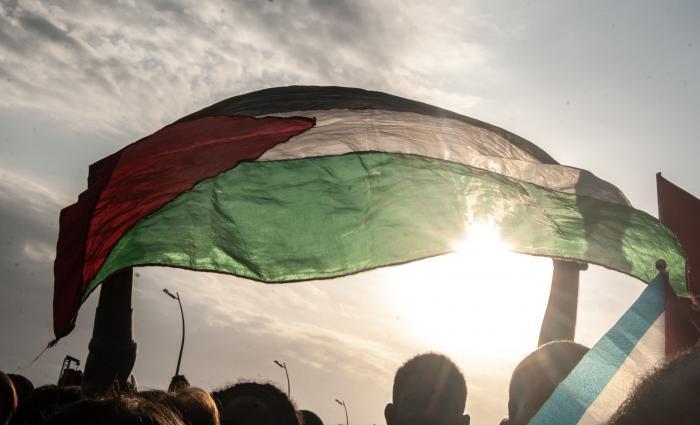
He says, with watery eyes, that his father died. She must not be ten years old. She has a beautiful face and straight brown hair. She can't hold back her tears. She explains that before, when she was with her father, she was never cold. He was in charge of fetching the firewood and keeping the environment warm for his little girl. Now the icy wind makes her skin numb. She is alone. You can smell the fear in her words. She feels that nothing is right.
Next to her, another little girl has that expression of horror on her face. A kind of involuntary grimace, as if fear had disfigured the innocence in their eyes. They are fragile, desperate, in the middle of a war.
Gaza has become a bleeding wound on one side of the world. A stab under the rib cage of the earth, a deep incision from which blood and a dull, constant pain emanate.
It is two o'clock in the morning and I am still wide-eyed. The flu and the nasobuco that I carry to take care of the contagion to my family, hammer in my sleep, disturb it.
I am on the sofa. I put the pillow back. I watch the video of the Palestinian girls. I sense their sadness as expertly as the doctor checks my lungs.
From miles away I can sense their pain, the uneasiness. No one can stand still when the sadness is so deep, when the look is so frank and sad, when the bombs are on the heels of so many innocent people.
A small hand rests on my face. My daughter, with a tender gesture, takes my hand and leads me to the bed. She likes to feel me close when she sleeps. She smells me. She can't fall asleep without me.
She lets her little foot, which still fits me in a kiss, touch my skin, as a kind of bridge between her bed and mine.
My little girl sleeps. But there are two little girls who have been cold since the war killed their parents. Two little girls who are not to blame. Two teary-eyed girls who also deserve to live.








